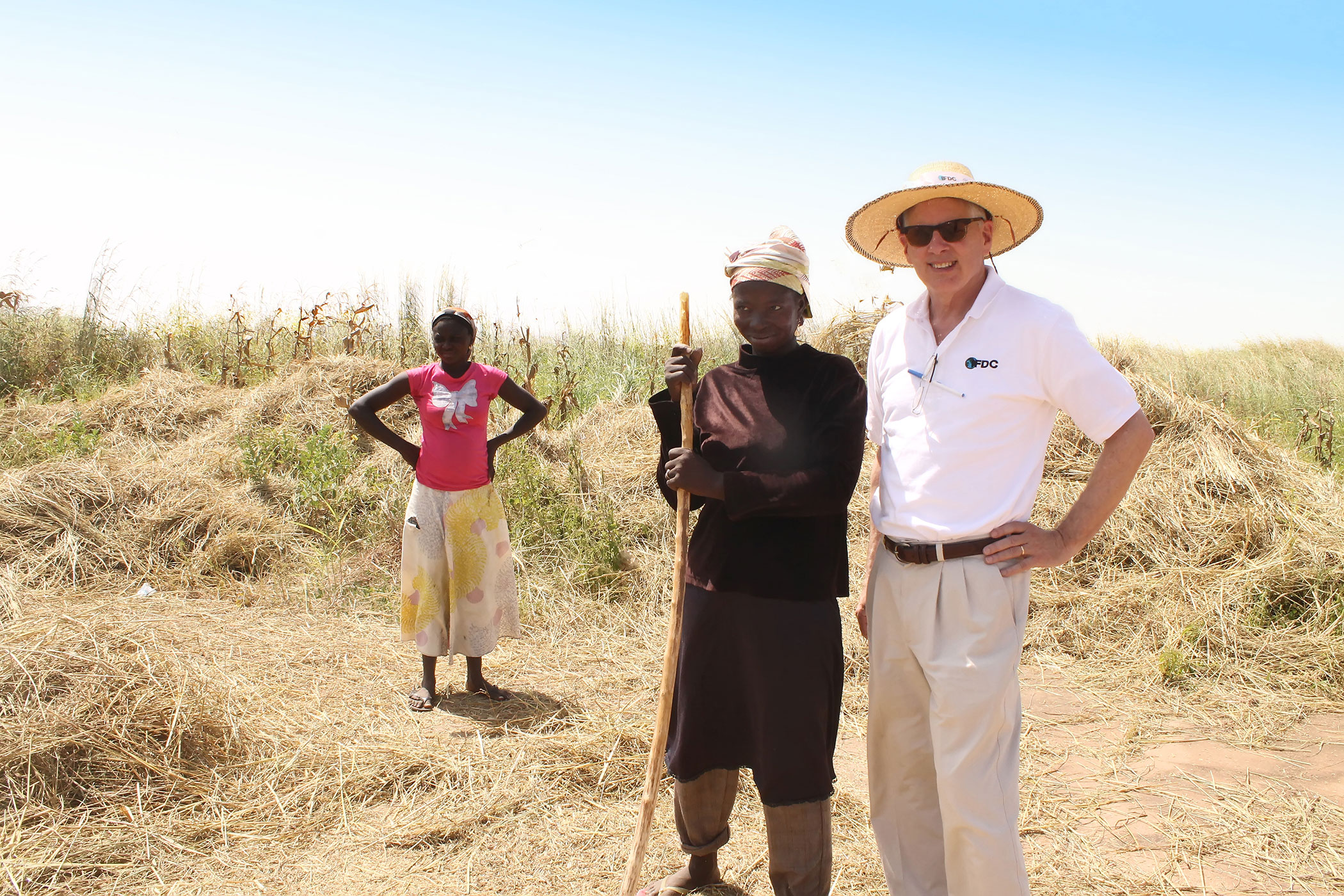For years, soil scientist J. Scott Angle worked to make some the world’s most technologically advanced farms more productive and more sustainable. Today, he’s doing the same for small-scale and subsistence farmers across the world.
Angle, who served as dean and director of the UGA College of Agricultural and Environmental Sciences for 10 years before joining the nonprofit International Fertilizer Development Center, will return to campus April 18 to speak at the CAES International Agriculture Day Reception. Open to the public, the reception begins with Angle’s lecture at 3:30 p.m. at the Georgia Museum of Art.
Angle’s lecture, “The Struggle for Enough: Why Half the World’s Farmers Go Hungry,” will address the effectiveness of the IFDC and other nongovernmental organizations that work to improve the livelihoods of smallholder farmers. He hopes to challenge CAES students, staff and faculty to think globally as they work to improve agriculture.
“Dr. Angle has a unique perspective on the ways in which the research conducted at UGA and other land-grant institutions enables outreach and development agencies to do their work,” said Amrit Bart, assistant dean and director for the college’s Office of Global Programs. “Having had a hand in fostering that research and now running a globally prominent development agency that depends on it, he has an important message for our students and faculty about the impact of their work around the world.”
Each year, the CAES Office of Global Programs hosts the International Agriculture Day Reception to encourage those engaged in international scholarship, research or outreach to build networks and to recognize students who have worked or studied abroad over the last year.
It’s also a chance to celebrate students who are graduating with certificates in international agriculture, Bart said. The reception offers students outside CAES the chance to explore the world of international agricultural development or business.
Angle often invoked the international impact of agricultural research and outreach during his time at CAES and working with IFDC has only crystallized his view that eradicating hunger and improving agriculture are the great challenges of our
generation.


